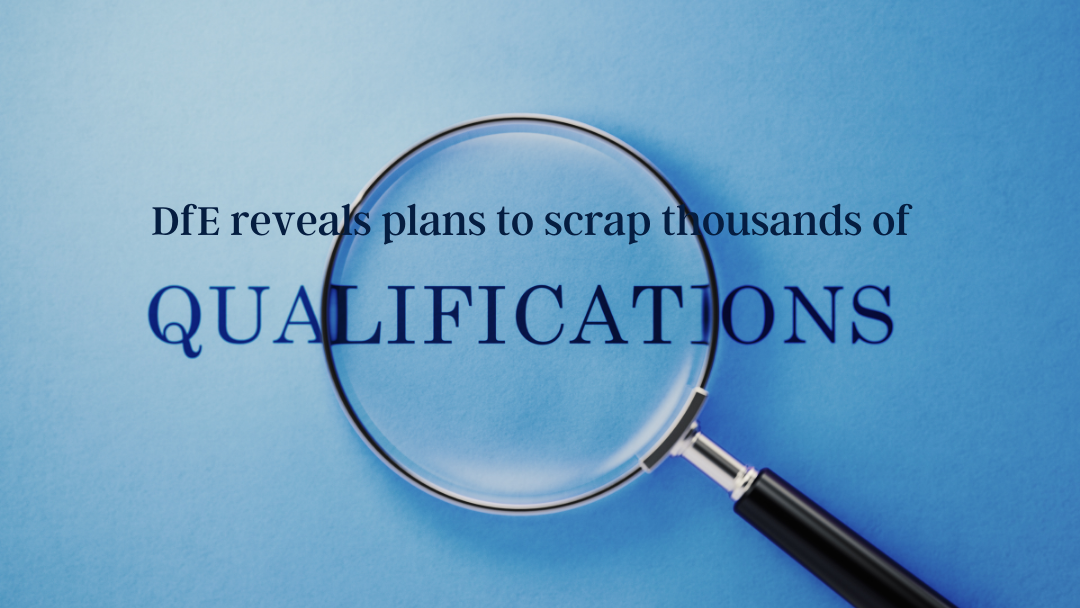Thousands of level 2 and below qualifications face the chop under government plans announced today to “streamline” the system. A consultation on reforms to technical and academic qualifications at level 2 and below, excluding GCSEs, functional skills and essential digital skills qualifications, has been launched by the Department for Education. The post-16 review aims to create a streamlined qualifications landscape with clear choices for young people and adults, and to ensure that every qualification approved for public funding has a distinct purpose, is high quality, and supports students to progress to positive outcomes.
Officials claim the current landscape is “confusing” with around 8,000 qualifications available at these levels, many of which cover the same or similar subjects. For example, there are more than 650 building and construction qualifications at these levels, and nearly 560 in health and social care. That figure includes nearly 5,000 qualifications that have already been identified for funding removal because they have low or no enrolments, or on the list of excluded qualifications above.
This consultation follows a separate contentious review of level 3 qualifications which proposes to remove funding for most courses including Pearson’s popular BTECs that overlap with T Levels and A-levels from 2024. The level 2 and below consultation does not set out exactly what qualifications are set to lose their funding, but it does shows new “groups” that qualifications will need to fit into the Governments Plan for Jobs. The process for deciding which level 2 and below qualifications will be done in a phased way from 2024 to 2027, starting with reform to qualifications in the construction route at level 2, followed by other level 2 qualifications.
Qualifications that may not fit into the proposed landscape include “the smallest qualifications, where they are unlikely to be able to provide a student with the knowledge, skills and behaviours contained in a relevant employer-led standard, or to provide them with broad content relevant to an occupational route”. The DfE propose not to fund qualifications that are “too narrowly focused only on certain skills, such as plumbing or bricklaying, and do not provide a broad enough introduction to the occupational route, such as construction, to support progression to level 2”. Qualifications that aim to provide entry into an occupation but where there is “no relevant employer-led standard at level 2″ will also be affected.
Skills minister Alex Burghart said: “We are delivering qualifications designed with employers that give students the skills the economy needs. The consultation we are launching today is the next step in making that change a reality. We are already rolling out T Levels and reviewing thousands of technical qualifications to make sure they are fit for purpose. We want to make sure all qualifications are high-quality and help people progress in life and work.”
A deadline of 27 April has been set for responses to the level 2 and below consultation.
George Swann FIS Skills and Training Lead commented: “This consultation aligns to the ambition for qualifications to aligned to and lead people into employment. Provision for the finishes and interiors sector is growing. FIS currently has 33 Approved Training Provider members all delivering qualifications for the sector – see the FIS Training Directory. Data received indicates the sectors employers are investing in qualifying the workforce, but there is still approximately 40% to 50% of the sector unqualified, as the article states if the qualifications available to the sector are not utilised there is a danger they could be lost. FIS Approved Training Provider members provide offers, discounts and in some cases free of charge qualifications. If you need information, advice or guidance contact FIS on 0121 707 0077 or email info@thefis.org


